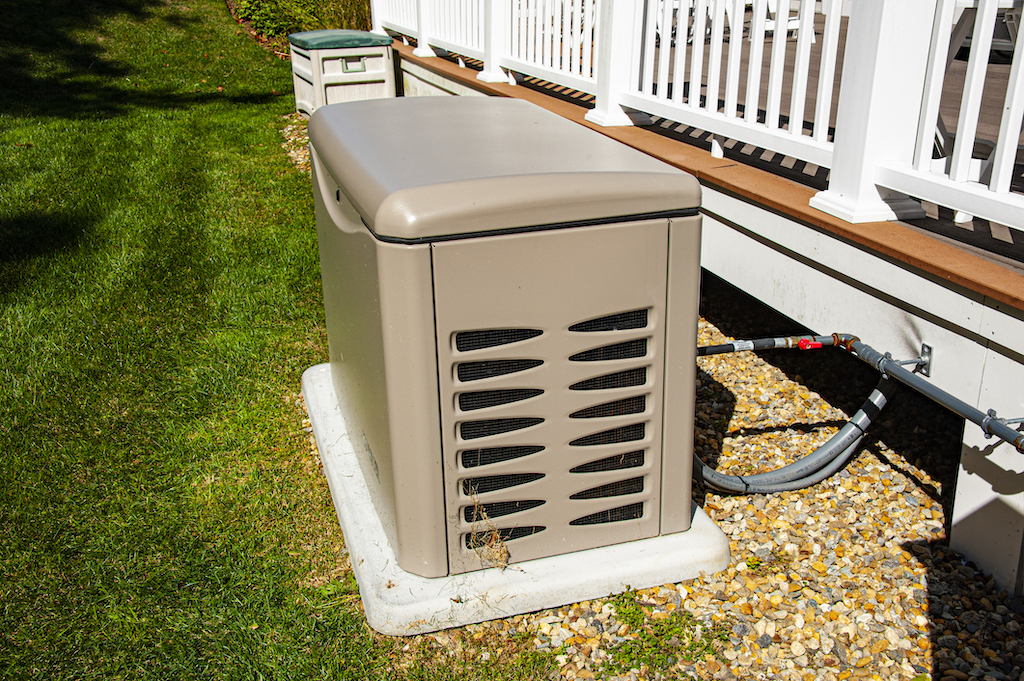
Understanding The 4 Essential Rules Of A Standby Generator
The Importance of Standby Generators
Have you ever wondered how to ensure your home remains powered during unexpected outages?
Standby generators are an essential investment for homeowners in Dillon, SC, providing reliable power when the grid fails.
To maximize their effectiveness, it’s crucial to follow certain guidelines.
Rule 1: Proper Location and Installation
Choosing the Right Location
Selecting the right location for your standby generator is crucial for both safety and efficiency.
It’s important to ensure that the generator is placed where prevailing winds will blow exhaust fumes away from living areas.
This helps to prevent potentially dangerous carbon monoxide from entering your home.
Additionally, maintaining at least five feet of clearance from windows, doors, and vents is essential to comply with safety standards and reduce noise pollution.
Installation Guidelines
Proper installation of your generator is equally important.
Avoid installing the generator under overhangs or in areas prone to snow drifts, as these conditions can obstruct airflow and lead to overheating or other operational issues.
Use a concrete or gravel pad to stabilize the generator, which helps to keep it level and secure.
Before installation, obtain the necessary permits and schedule inspections to ensure compliance with local codes and regulations.
This step not only ensures safety but also validates your insurance coverage in the event of any incidents.
Rule 2: Preventing Backfeed
Importance of Backfeed Prevention
Backfeed prevention is a critical safety measure when installing a standby generator.
Backfeed occurs when power from your generator flows back into the utility lines, which can be extremely dangerous for utility workers attempting to repair the grid and can also damage your electrical equipment.
To prevent backfeed, it’s essential to install a transfer switch that isolates the generator from the main power grid.
Types of Transfer Switches
There are two main types of transfer switches: manual and automatic.
Manual transfer switches require the user to manually switch the power source to the generator during an outage.
While they are less expensive, they require active management during power interruptions.
Automatic transfer switches, on the other hand, switch the power to the generator automatically when an outage is detected, providing seamless operation and greater convenience.
Rule 3: Ensuring Adequate Ventilation and Cooling
Ventilation Requirements
Proper ventilation is essential for the safe and efficient operation of your standby generator.
The generator should be placed in an area with sufficient airflow to prevent overheating.
Avoid enclosed spaces that can trap exhaust gases and reduce the generator’s efficiency.
Good ventilation ensures that the generator operates at optimal temperatures, especially during prolonged use.
Cooling Mechanisms
Regularly checking and maintaining the generator’s cooling system is vital.
This includes ensuring that the generator is not exposed to direct sunlight for extended periods, particularly in hot climates, as this can cause overheating.
Routine maintenance of the cooling system, such as cleaning and checking coolant levels, helps to prevent failures and prolongs the life of the generator.
Rule 4: Regular Maintenance and Testing
Routine Maintenance Tasks
Regular maintenance is crucial for the reliable operation of your standby generator.
This includes changing the oil, filters, and spark plugs according to the manufacturer’s guidelines.
Inspect the fuel system for leaks and ensure that the fuel is clean and fresh, as old or contaminated fuel can cause the generator to malfunction.
Testing the Generator
Conducting monthly tests helps ensure the generator starts and runs smoothly when needed.
Load testing verifies that the generator can handle the required electrical load during an outage, providing peace of mind that your backup power system is ready for action.
By following these four essential rules, you can ensure your standby generator operates safely and efficiently, providing reliable power during outages.
Regular maintenance, proper installation, and adherence to safety guidelines are crucial for the optimal performance of your generator.
Rule 5: Fuel Management
Proper Storage and Quality
Proper storage and management of fuel are essential to ensure the reliable operation of your standby generator.
The type of fuel used can significantly impact the generator’s performance and longevity. Here’s a detailed guide on managing fuel storage effectively:
Ventilated Storage Area:
Fuel should be stored in a well-ventilated area, away from living spaces, to minimize the risk of fumes entering the home and reduce the potential for fire hazards.
A detached garage or a dedicated outdoor storage shed are ideal locations.
Fuel Rotation:
Fuel has a limited shelf life, and over time, it can degrade, especially if it contains ethanol, which attracts moisture and can lead to phase separation.
Regularly rotate your fuel supply to ensure it remains fresh.
For gasoline, consider adding fuel stabilizers to extend its shelf life.
Diesel fuel should be treated with biocides to prevent microbial growth.
Recommended Fuel Type:
Always use the fuel type recommended by the generator’s manufacturer.
Using the incorrect fuel type can damage the engine and void the warranty.
Common fuel types include gasoline, diesel, natural gas, and propane.
Each type has its storage requirements and shelf life. For example, propane does not degrade over time and is an excellent choice for long-term storage.
Storage Containers:
Use approved containers for fuel storage.
For gasoline, use red containers; for diesel, use yellow containers; and for kerosene, use blue containers.
Ensure these containers are properly sealed to prevent leaks and vapor release.
Labeling containers with the date of purchase can help keep track of the fuel’s age.
Local Regulations:
Comply with local regulations regarding fuel storage. In Dillon, SC, check with local authorities for any specific requirements or restrictions on fuel storage volumes and safety measures.
Safety Measures:
Keep a fire extinguisher nearby and ensure that storage areas are free from open flames, sparks, and high heat sources.
Regularly inspect storage containers for signs of wear or leaks.
Emergency Supply
Having an adequate emergency fuel supply is crucial for ensuring your generator can operate continuously during prolonged power outages.
Here are some key considerations for managing your emergency fuel supply:
Sufficient Quantity: Determine the amount of fuel needed to run your generator for an extended period.
This depends on the generator’s fuel consumption rate and the expected duration of power outages.
For instance, a typical standby generator may consume between 1 to 3 gallons of fuel per hour under full load.
Calculate your needs based on this rate and keep an adequate supply on hand.
Regular Checks: Regularly check and replenish your fuel supply to ensure it is always ready for use.
This includes monitoring the fuel levels in storage tanks and inspecting fuel quality.
Replace any degraded fuel to prevent engine problems.
Emergency Plans: Have a plan for refueling during long outages.
Identify local fuel suppliers who can provide emergency deliveries, especially during widespread power outages when fuel might be in high demand.
Fuel Accessibility: Ensure that fuel is easily accessible and that you have the necessary equipment to refuel the generator safely.
This might include fuel transfer pumps or spouts designed for safe and efficient refueling.
Climate Considerations: Consider the climate in Dillon, SC, when managing your fuel supply.
High temperatures can increase evaporation rates, while cold weather can cause fuel gelling in diesel.
Store fuel in climate-controlled conditions if possible, or use additives to mitigate these issues.
Rule 6: Emergency Preparedness and Backup Planning
Developing a Comprehensive Plan
Having a standby generator is a significant step toward ensuring your home or business remains operational during power outages.
However, it’s equally important to develop a comprehensive emergency preparedness plan that includes backup planning.
Here’s how to ensure you’re fully prepared for any situation:
Identify Critical Loads: Determine which appliances and systems are essential during a power outage.
This typically includes refrigeration, heating and cooling systems, medical equipment, lighting, and communication devices.
Understanding your critical loads will help you prioritize power distribution and manage your generator’s capacity effectively.
Create a Checklist: Develop a checklist of tasks to complete before, during, and after a power outage.
This list should include steps for safely starting and shutting down the generator, checking fuel levels, and ensuring that all critical loads are connected and functioning.
Training and Drills: Conduct regular training sessions and drills with family members or employees to ensure everyone knows how to operate the generator safely.
This includes knowing how to connect and disconnect loads, perform basic maintenance, and troubleshoot common issues.
Communication Plan: Establish a communication plan to stay in touch with family members or employees during an outage.
Ensure that mobile phones and other communication devices are charged and have backup power sources.
Keep a list of emergency contacts, including utility companies, local authorities, and medical services.
Supplies and Equipment
Emergency Kit:
Prepare an emergency kit that includes essential supplies such as food, water, first-aid items, medications, flashlights, batteries, and a battery-powered or crank radio.
This kit should be easily accessible and regularly checked to ensure all items are up to date and functional.
Backup Power Sources:
Consider additional backup power sources, such as portable generators, solar-powered chargers, and battery banks, to provide redundancy in case your primary generator fails or requires maintenance.
Portable generators can be particularly useful for powering specific appliances or tools during an extended outage.
Safety Equipment:
Keep safety equipment on hand, including fire extinguishers, carbon monoxide detectors, and protective gear.
Install carbon monoxide detectors near the generator and in key areas of your home to monitor for dangerous fumes.
Fire extinguishers should be easily accessible and regularly checked for functionality.
Review and Update the Plan
Regular Review: Periodically review and update your emergency preparedness plan to ensure it remains relevant and effective. Changes in household needs, new equipment, or updated local regulations may require adjustments to your plan.
Stay Informed: Keep informed about potential threats to your power supply, such as severe weather forecasts or planned maintenance by your utility company. Being proactive and staying informed will help you activate your emergency plan in a timely manner.
Community Resources: Engage with community resources and support networks. Local emergency services, community organizations, and neighbors can provide valuable assistance and information during an extended power outage.
Benefits of Owning a Standby Generator
Uninterrupted Power Supply
One of the most significant benefits of owning a standby generator is the assurance of an uninterrupted power supply during outages.
Power interruptions can occur due to various reasons, including severe weather conditions, equipment failure, and scheduled maintenance.
A standby generator automatically detects power loss and activates within seconds, ensuring that your home or business continues to function smoothly without any interruption.
Increased Property Value
Installing a standby generator can increase the value of your property.
Potential buyers often view standby generators as a valuable addition, offering peace of mind and convenience.
This investment not only enhances the functionality of your home but also makes it more attractive in the real estate market.
Safety and Security
During a power outage, the safety and security of your home can be compromised.
Security systems, including alarms and surveillance cameras, rely on electricity to function.
A standby generator ensures these systems remain operational, providing continuous protection against potential intruders and other safety hazards.
Additionally, maintaining lighting during an outage helps prevent accidents and injuries within your home.
Business Continuity
For businesses, power outages can lead to significant financial losses due to halted operations, lost data, and damaged equipment.
A standby generator ensures business continuity by providing reliable power, allowing operations to proceed without interruption.
This is particularly important for businesses that rely on constant power, such as data centers, healthcare facilities, and manufacturing plants.
Convenience and Comfort
Owning a standby generator offers unparalleled convenience and comfort during power outages.
Unlike portable generators, which require manual setup and fueling, standby generators automatically switch on and off as needed.
This hands-free operation means you can go about your daily activities without worrying about power interruptions or the hassle of managing a portable unit.
Long-Term Cost Savings
While the initial investment in a standby generator may seem substantial, it can lead to long-term cost savings.
Preventing food spoilage, protecting sensitive electronics, and avoiding the costs associated with business downtime can offset the investment over time.
Additionally, some insurance companies offer discounts on premiums for homes equipped with standby generators, providing further financial benefits.
Peace of Mind
Perhaps one of the most invaluable benefits of owning a standby generator is the peace of mind it provides.
Knowing that you have a reliable backup power source in place allows you to face power outages with confidence.
Whether you are at home or away, you can trust that your standby generator will keep your essential systems running smoothly.
By investing in a standby generator, you protect your home and business from the adverse effects of power outages and enhance your overall quality of life.
Conclusion
Investing in a standby generator is a crucial step for homeowners and businesses, particularly in areas prone to power outages like Dillon, SC.
By following the essential rules of proper location and installation, preventing backfeed, ensuring adequate ventilation and cooling, performing regular maintenance, and managing fuel effectively, you can ensure that your generator operates safely and efficiently.
The additional benefits of owning a standby generator, such as uninterrupted power supply, protection of essential systems, increased property value, enhanced safety and security, business continuity, convenience, long-term cost savings, and peace of mind, make it a valuable asset.
Proper planning and preparation are key to maximizing these benefits and maintaining reliability during power outages.
FAQs
- What is the importance of a transfer switch for a standby generator?
A transfer switch is crucial as it isolates the generator from the main power grid, preventing backfeed, which can endanger utility workers and damage electrical equipment. It ensures safe and seamless switching between utility power and generator power.
- How often should I perform maintenance on my standby generator?
Routine maintenance should be performed according to the manufacturer’s guidelines, typically involving tasks like changing the oil, filters, and spark plugs, and inspecting the fuel system. Monthly tests and annual load testing are also recommended to ensure the generator is ready for use.
- Can I install a standby generator myself, or do I need a professional?
While some aspects of generator installation can be done by knowledgeable homeowners, it is generally recommended to hire a certified technician. Professional installation ensures compliance with local codes, proper setup, and safe operation of the generator.
- How much fuel should I store for my standby generator?
The amount of fuel to store depends on your generator’s fuel consumption rate and the expected duration of outages. It’s important to keep a sufficient emergency supply, regularly check and rotate the stored fuel to ensure it remains fresh and effective.
- What are the key benefits of owning a standby generator?
Standby generators provide uninterrupted power supply during outages, protect essential systems, increase property value, enhance safety and security, ensure business continuity, offer convenience, lead to long-term cost savings, and provide peace of mind.
Have you experienced a power outage that made you wish you had a standby generator?
Share your thoughts and experiences in the comments below!



